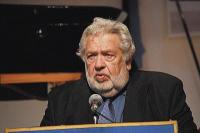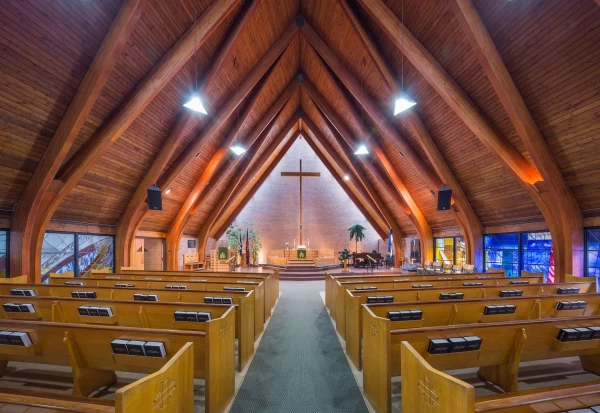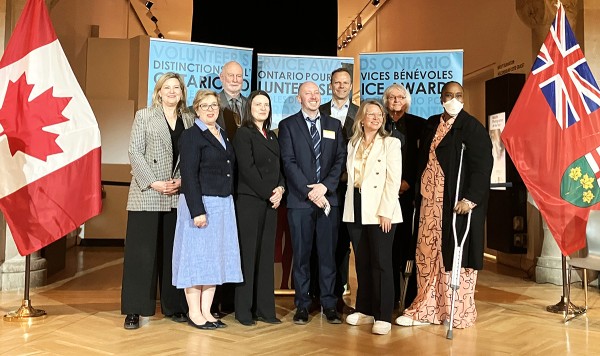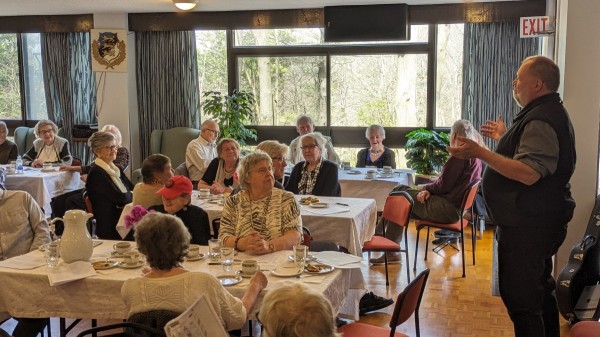Laas Leivat

As a concept, patriotism probably varies in nuance from culture to culture. But the most accepted definition in Western-liberal societies is the emotional attachment to a nation that is recognized as an indivdual’s homeland.
The attachment known by many as national pride can be expressed in different contexts which might be historical, political, cultural, ethnic. It’s closely related to nationalism, which in the modern setting has become a negative concept for many. Patriotism expressed in excess is known as chauvanism or jingoism.
Paul Goble states that it is a chauvanist or Russian imperialist patriotism that has been cleverly used by Vladimir Putin to bolster his autocratic and aggressive policies. Goble sees this form of patriotism as something from the past which has dangerously manifested itself under Putin. The latter recognizes this patriotism as a “primitive but powerful instrument for the ‘elite’ to govern the ‘herd’ in its interests”.
Aleksey Shiropayev says that “Russian patriotism is aways about preservation, its is always conservative, always statist and militarist and also oriented toward a strong power - the idea of Russia as an empire”. A Russian may see himself as a European or a liberal, but inevitably this patriotism will turn him against Ukraine, Georgia and the Baltic states.
Tata Oleynik, in the current issue of “Maxim”, sees a Russian patriot at the current time as one who has “demonstrated unqualified loyalty to the current powers that be”. Oleynik actually identifies 16 different most common forms of Russian patriotism, some of which are:
a) The Statesman. Government officials must be patriots who are forced to lie often.
b) The patriot deputy (member of parliament.) They often attract attention by making outlandish statements.
c) The patriot on TV. This one lacks any conviction whatsoever and his only utility is to help in the spread of the message “do what you are told today”. Ten percent of the population avoids them by not viewing TV. The other 90 percent is either unprincipled or stupid.
d) Patriot ex officio. This patriot may have his own opinion, but due to the inevitable mortgage, the well being of his children, he values his job and income more. They keep their personal convictions to themselves.
e) The Nashi youth. Mainly from the provinces, they represent those whose stupidity has them agree to anything for a modest award or the promise of one in the future.
f) The Anti-Maidan fighter. Those on a motorcycle who have promised „to physically beat the liberals so that things won’t be in Russia like they are in Ukraine”. Some of them actually commit violence on Russian liberals.
g) The Eurasian. Mostly Slavopiles who harken back to earlier Marxist-Leninist times and are outright imperialists and at the same time anti-Semites, racists, sometimes religious who have a weak knowledge of foreign languages but claim to be serious scholars. Often are accommplished demagogs.
h) Patriot 88. They are known as Russia’s Nazis obsessed with “purity of blood”.
i) The Red-Brown Patriot. These are convinced communists, they insist that communism is the only ideology a Russian can have. They mostly call for the destruction of the “incorrect population” by the millions.
The above descrptions are not based on any scholarly analysis but are the observations of people who have personally experienced such types.
Just rercently Vladimir Putin stated that that Russia has “no national idea besides patriotism and there can be no other.” In the summer of 2015 Putin referred to patriotism as the “sacred duty of Russians. In the fall it was a “moral compass” for youth.
Putin’s definition of a “national idea” has drastically changed over the years. In 2004, his national idea was “competitiveness”. In 2011 it was “saving people”.
It seems to be highly unlikely that by adopting patriotism as a national idea or a national creed in the Russian context will encourage the populace to be more tolerant, more accepting of liberal ideas, more attuned to human rights. In spite of the fact that Oleynik, the author of the list of Russian patriot types, did not compile it through reliable scientific research, not a single category of the 16 different types had any positive aspects associated with it.
Oleynek’s cynicism guided his choices. One may ask why was he so obviously cynical?
Laas Leivat




























